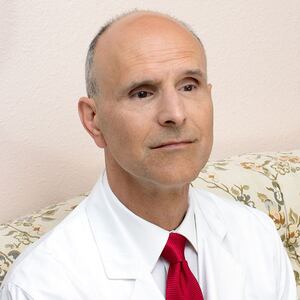Rebekah Hagan was a college freshman when she discovered she was pregnant with her second child. In a vulnerable moment, swayed by pressure from the “abortion industry,” she obtained a medication abortion—a two-pill process that can successfully terminate most pregnancies before 10 weeks. She immediately regretted it.
Luckily for Hagan, there was a revolutionary new procedure that could stop the effects of medication abortion in its tracks and save the life of a growing fetus. And it could be obtained by calling a single hotline.
At least, that’s what dozens of ads on Facebook would like you to think.
Hagan is one of the faces of a $100,000-plus ad campaign run by anti-abortion organization Live Action, which advertises so-called “abortion reversal” as an effective means of reversing a medication abortion. In reality, the “method” is an unproven, potentially dangerous intervention that has never been approved by the FDA. The only independent study on it was halted after a quarter of the participants were hospitalized.
But ads promoting it on Facebook were seen up to 18.4 million times in the last year and a half, according to a new report from the Center for Countering Digital Hate. More than three-quarters of Google searches for terms related to abortion displayed similar ads.

The CCDH, a London and Washington, D.C.-based nonprofit that researches the spread of medical misinformation, analyzed 92 Facebook ads promoting abortion pill reversal between Jan. 1, 2020, and Sept. 8, 2021. They found these ads were viewed between 16.2 and 18.4 million times—including more than 700,000 times by children between the ages of 13 and 17. Facebook accepted between $115,400 and $140,667 for these ads over that time period, according to its own ad library.
The group also conducted Google searches for 10 abortion-related phrases in 14 different cities, and found that 83 percent of them returned at least one promoted ad for abortion reversal.
Dina Montemarano, the research director at NARAL Pro-Choice America, called the report “both horrifying and utterly unsurprising”—an example of how these companies are “willing to put money and power ahead of their users’ safety.”
“They would rather let far-right anti-choice groups advertise an unproven, dangerous practice to literal teenagers than address even the lowest-hanging fruit of medical disinformation,” she told The Daily Beast.
A Google spokesperson said the company does not allow ads that promote harmful health claims, including those for abortion pill reversal. After reviewing a copy of the report provided by The Daily Beast, Google said it had removed all of the ads mentioned.
Twelve hours after this story published, Facebook issued a statement saying it had removed most of the ads from its platform, too.
“We removed many of the ads identified in the report—some were inactive and months or years old—for violating our policies around offering adult products and services,” a spokesperson said.
Right-wing groups have for years promoted abortion pill reversal as an antidote to the rising popularity of medication abortions, which can safely and effectively end a pregnancy from home at up to 10 weeks gestation. Medication abortions are a two-pill process; those seeking “abortion reversal” halt the process after the first pill and take a dose of progesterone.
Dr. George Delgado, the inventor of the purported reversal procedure, practices out of a Southern California clinic offering “Christ-centered medical care” and has said he considers himself part of the “pro-life” movement. The only completed studies on the method are Delgado’s own, and have serious methodological flaws. When doctors at the University of California attempted an independent study of the method in 2019, they enrolled only 12 patients before three were rushed to the hospital with serious bleeding. (One of those women received progesterone, two received a placebo.) The American College of Gynecologists and Obstetricians has deemed the procedure “unproven and unethical.”
That hasn’t stopped anti-abortion advocates from promoting it relentlessly. Most of the Facebook ads surveyed by the CCDH were purchased by Live Action, an anti-abortion group that claims to have “the largest online presence in the pro-life movement.” The ads link to a website promoting the Abortion Pill Rescue Network, a 1,000-plus-person network of “medical practitioners” willing to administer the experimental treatment, which is operated by a chain of “crisis pregnancy centers” called Heartbeat International. Almost all of the Google ads also link to this site.
After this story was published, Heartbeat International reached out to dispute the report’s characterization that it had purchased the Google advertisements. A spokesperson claimed that, while Heartbeat International did own and operate the website linked in the ads, the spots themselves were purchased by a third party. They declined to name the third party.
Some of the Facebook ads feature the stories of women like Hagan, who the ads claim succumbed to “abortion industry pressure” but was able to “save her baby boy” with the help of abortion pill reversal. Others feature videos of fetuses in the womb, and claim medication abortion “places the lives of women and children in grave danger.” (The rate of severe complications for medication abortion is less than 0.5 percent.) The Google ads ask viewers whether they regret their decision to obtain an abortion and promise “the abortion pill truth.”
One of the most recent Facebook ads started running on Sept. 1 and targeted women in Texas—where just that day, lawmakers had enacted a law allowing private citizens to sue anyone who helped a pregnant person get an abortion after six weeks. That ad, which was seen by up to 700,000 people, featured ultrasound footage of a fetus in utero and told viewers who had taken the abortion pill that “it may not be too late to reverse the effects and save your baby.”
Dr. Nisha Verma, an abortion provider and ACOG fellow, said ads like these not only harm people seeking abortions, but contribute to the stigma around the procedure.
“It’s projecting this false narrative that people aren’t sure, that people aren’t getting counseling, that they're getting tricked into making these decisions and then changing their minds,” she said. “And that then contributes to other attempts to restrict abortion.”

Facebook’s policies state that ads targeted toward minors must not promote products that are “inappropriate, illegal or unsafe, or that exploit, mislead or exert undue pressure on the age groups targeted.” Google’s policies prohibit ads for “non-government approved products that are marketed in a way that implies that they’re safe or effective for use in preventing, curing, or treating a particular disease or ailment.”
Live Action President Lila Rose said in a statement that her organization uses Facebook to “provide life affirming information to women and people everywhere.” She called it “incredibly disappointing and anti-choice” that organizations like CCDH were “working to restrict informed consent and censor life-saving options in order to protect the abortion industry.”
A spokesperson for Heartbeat International said the organization adheres to Google’s policies and encourages its affiliates to do the same, adding that this “helps ensure better results and holds true to our core values of providing accurate information to women seeking pregnancy help.”
“We advertise abortion pill reversal to reach those who have immediate regret after taking the first abortion pill,” the spokesperson said. “Many of those women searched for 'abortion pill reversal' specifically in search engines to find our network and so we will continue meeting her where she is so that we can offer her the chance she is looking for to try and save her pregnancy.”
Google has previously been called out for allowing advertisements for crisis pregnancy centers, which regularly mislead patients into believing they are abortion clinics when they in fact exist to dissuade people from seeking abortions. (Crisis pregnancy centers operated by Heartbeat International are known to set up shop next to abortion clinics and use similar signage in order to ensnare patients seeking to end their pregnancies; they also give patients dubious information linking abortion to breast cancer and infertility.)
In 2014, NARAL reported that 79 percent of the crisis pregnancy centers that advertised on Google falsely suggested that they provided medical services such as abortions. Google promised to remove the offending advertisements at the time, but a follow-up survey conducted by the pro-choice news site Rewire in 2017 found that Google searches for abortion in major U.S. cities turned up fake clinic ads at least 40 percent of the time.
The CCDH report found that nearly a quarter of the ads for abortion pill reversal still contained the phrase “find abortion clinic near me,” falsely suggesting that the clinics advertised offered abortion services. (The Heartbeart International spokesperson said none of its ads contained the phrase “find abortion clinic near me.”)
While the majority of these ads contained a Google-mandated disclaimer stating that they did not provide abortions, the ones that appeared under searches for “Planned Parenthood” did not. This is a direct violation of Google’s policy that all advertisers running ads under abortion-related keywords must identify whether they perform abortions.

The report makes several suggestions of how the tech companies can remedy this, including taking down the offending ads and donating the proceeds to reproductive-rights charities. It also suggests banning repeat offenders from advertising again and promoting accurate information to those who had already seen the ads.
But Imran Ahmed, the chief executive of CCDH, said his top priority is simply getting Google and Facebook to enforce their own, existing rules.
“You can’t say, ‘We have these rules, look at us, we’re a platform where you’d want to send your kids,’ and then at the same time not enforce them,” he told The Daily Beast.
“They’re having their cake and eating it too, and they’re doing it at the expense of women’s lives.”







